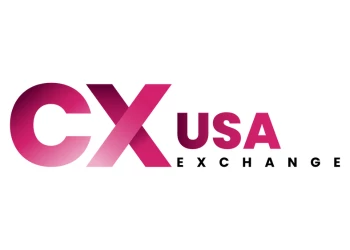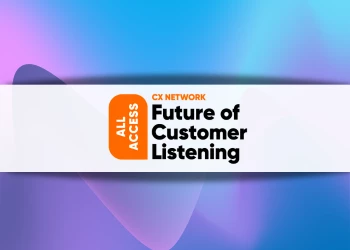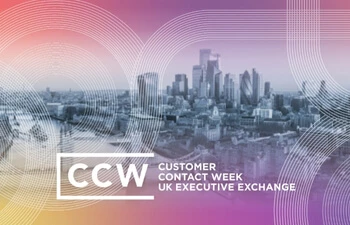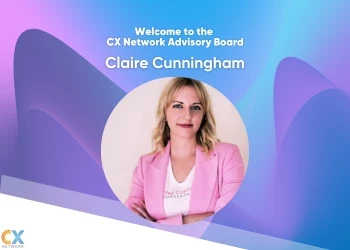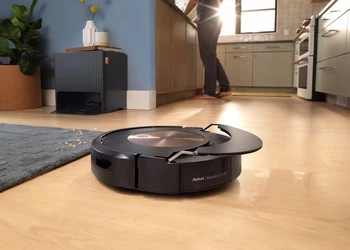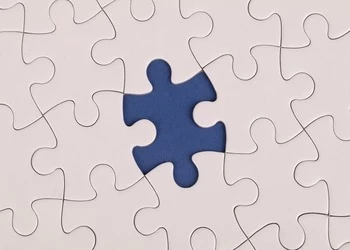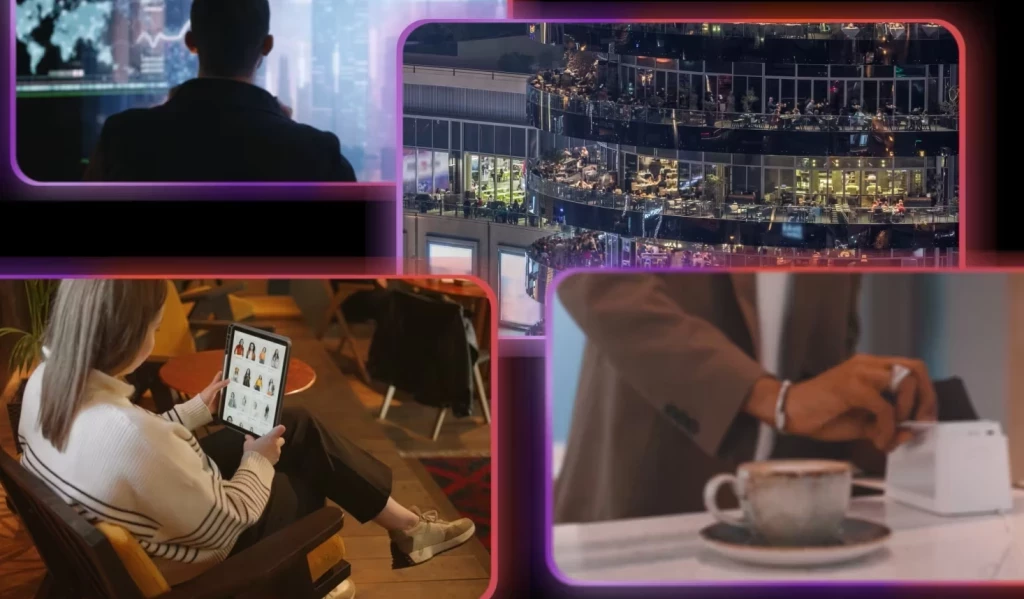‘When we talk customer, we practice customer’
Add bookmarkAIA Malaysia’s Chief Customer Experience Officer discusses his responsibility for the experiences they create for their customers.
EPISODE OVERVIEW:
The Chief Customer Experience Officer for AIA Malaysia, Troy Barnes joins host Seth Adler in this week’s CX Network podcast.
Barnes shares that he tries to keep it as simple as possible. He see’s his position as – ultimately – him being personally accountable for the experiences the organisation creates for customers. He, of course, credits his very talented team for actually getting the job done.
The biggest thing that management tries to endorse is that when they talk customer, they practice customer. Meaning that rather than simply talking about the customer experience, he and the team actively get out into the world and experience what the customer experiences so that they can improve on that very thing.
“We’ve got a very complex business. There are lots of things happening in lots of places and lots of change happening. So if you’re not continually plugging the message; the core of why we’re here, it gets lost.â€
LISTEN NOW:
TRANSCRIPT:
Seth Adler: From AIA, Troy Barnes. First, some supporters to thank, and thank you for listening.
This episode is supported by the CX Network. The CX Network provides expert commentary, tools and resources developed by customer experience professionals and industry insiders. With a growing membership and global portfolio of events, CX Network ensures you keep your finger on the pulse by delivering practical and strategic advice to help achieve your business goals. Wherever you are on your customer strategy journey, join the CX Network's global community today. Go to CXNetwork.com for more.
This episode is also supported by the Chief Customer Officer Exchange. CCOE discusses approaches on driving a profitable customer strategy at all levels of the enterprise. Join the only event focused on bringing together innovating cross-industry chief customer officers November 5th through the 7th in Miami, Florida. Benchmark on improving customer experience, establishing customer-centric strategies, and producing more valuable customer insights, go to CCOExchange.iqpc.com for more.
The Chief Customer Experience Officer for AIA Malaysia, Troy Barnes, joins us, and shares that he tries to keep it as simple as possible. He sees his position as ultimately him being personally responsible and accountable for the experiences the organization creates for customers. He, of course, credits his very talented team for actually getting the job done. The biggest thing that management tries to endorse is that when they talk customer, they practice customer, meaning that rather than simply talking about the customer experience, he and the team actively get out into the world and experience what the customer experience is so that they can improve on that very thing.
Welcome to CX Network on B2B IQ. I am your host, Seth Adler. Download episodes on CXNetwork.com, or through our app in iTunes, within the iTunes podcast app, in Google Play, or wherever you currently get your podcasts. Troy Barnes.
Troy Barnes: I try and keep it as simple as I can, and that means ultimately I am accountable for the experiences we create for customers.
Seth Adler: Okay.
Troy Barnes: Of course, beneath all of that, I've got an extremely talented team that help deliver those experiences.
Seth Adler: I love the ... it's Teddy Roosevelt for me, "The buck stops here," you know? You've heard that phrase?
Troy Barnes: Yup.
Seth Adler: So, you ascribe to this philosophy, so to speak?
Troy Barnes: Yeah, absolutely.
Seth Adler: All right, so as far as management is concerned, what school, what philosophy are you coming from beyond that simple phrase, "The buck stops with me."
Troy Barnes: I think that probably the biggest thing we tried to endorse in what we do is making sure when we talk customer, we practice customer.
Seth Adler: What does that mean?
Troy Barnes: When we talk about customers, we think about customers. It includes being with customers, doing it for customers, and actually interacting with real customers. So, I leverage one of the phrases, a guy by the name of Steve Blank, which is coined, "Get out of the building." You're not going to get inside observation about what customers are really thinking, and what problems they're really trying to solve, unless you're out there with them. I think that goes a long way to being practicing what you preach, if nothing else.
Seth Adler: Management by walking around all the way down to the customer.
Troy Barnes: Correct. Absolutely.
Seth Adler: What, I would imagine, if you're telling folks to do that, they are doing it, at least some of them, right? And, you've got some folks that won't do whatever you say whenever you say it, but when you tell folks to do that, and then they do that, what kind of stories do they come back with? Some are some of the more interesting anecdotes that you've heard?
Troy Barnes: It's interesting. Our business model, like many insurers in this part of the world, is led largely by an intermediary, such as an insurance agent. So, the traditional concept of, "We don't deal with customers, the agent does," gets contradicted when you sit down and actually talk to a customer. I've had conversations where people have said to me, "Hey listen, I'd love to connect with you guys. My guy does it for me. I don't really need to. He just does it."
When you have those conversations, you open the door to all the things we can do that we don't, or we haven't, traditionally. It's, dare I say, just another one of those "A-ha" moments. We can talk to customers. We actually can engage them. In this part of the world, there is, again, a mindset I'm sure most insurance companies that the customers, the agent's responsibility, we keep at arm's length. That's not the play anymore.
Whilst we don't compromise their value composition to their customers, we certainly do our very best to augment that and make sure we play key role-
Seth Adler: Augmenting that relationship would include such things as what?
Troy Barnes: I guess what you could determine low value-type things that don't require an agent to physically go and see the customer ... and I'll just use very basic example.
Seth Adler: Sure.
Troy Barnes: I've moved house. I need to update my interests. I don't need an agent to come over and build a relationship, try and [inaudible] or a new product because I changed my address. A quick call to these guys, or I walk into one of their stores, or I use the portal that I've got, and I just do it because it's easy, it's simple and I can. We've provided those channels for those reasons.
Don't get me wrong, there are others we'd like to use more, which currently the agent still sees as their value play. We'll support the ones that want us to do so for now, and let the agents run with it when we do, and just compliment them as best as we can. But, the tide is shifting because five, 10 years ago, or more, particularly in this part of the world, it was ... dated a lot.
In some markets, particularly the emerging ones, they still do. So, we're in a positive way balancing that relationship to make sure that we can allow them to focus on making sure they grow their business. So, acquiring more customers, getting more customers adequately insured, we play the role of let's make sure relationship beyond that is at the level that you expected to for your customer that you bring in.
Seth Adler: So, we've talked about you managing your team, and then all the way kind of through to the value chain to the ultimate customer. What about kind of back up? When you are managing the customer experience back up to the CEO/CFO, what's important for you to share with them? What are they understanding? What are they needing kind of reminders on?
Troy Barnes: Good question. I think it's not an easy play. I started the journey in my current role with my former boss, repositioning the role that I took over. We were very deliberate about branding my role as Chief Customer Experience Officer.
Seth Adler: As opposed to what, I wonder?
Troy Barnes: As opposed to a Chief Operating Officer.
Seth Adler: Interesting.
Troy Barnes: So, my predecessor was the CLO for the company.
Seth Adler: Interesting.
Troy Barnes: It wasn't about title, but more about the message that it was sending to the team that I have, the rest of my peers in the business, and also our intermediaries. So, the role was about, "This is the focus, this is what we're here to do." We started that journey with collaborative vision across the whole company and then set sail from there. When it comes to dealing with my peers and my managing output, so to speak, it's a few things: Keep the message simple and short. I go all the way back to Sam Walton, who quotes the whole, "Without a customer, you don't have a business." And, he or she can fire everyone from the Chairman down, by spending somewhere else.
Seth Adler: Sure.
Troy Barnes: We use that repetitively, because what I find is ... and we've got a very, very complex business. There are lots of things happening in lots of places, and lots of change happening. So, if you're not continually plugging the message, the core of why we're here, it gets lost. And, insurance companies traditionally have been very product and distribution channel-centric. So, I know that we've got to keep that agenda at the front because if it's not, it will lose and it will start to become part of the underlying, lost in whatever it is.
Seth Adler: Sure, yeah. No, old habits die hard.
Troy Barnes: Yes.
Seth Adler: It's what it is. Angela from Prudential, when I spoke with her, she's also ... well, she's the Chief Customer Officer, so obviously very similar in terms of terminology, but she was the CMO. I wonder ... it's an interesting thing that you're not necessarily a marketing guy, right?
Troy Barnes: Correct. It's ... yeah, I'm going to step out of school here. I think marketing has a role to play, and I know that there are very different views around marketing, operations, product, branding, even strategy. Some companies have Chief Strategy Officers, we don't. For me, if you're going to have that customer title, you've got to be neck deep in it. You've got to be part of it, and I might be a bit sort of narrow in my view, but you've got to deliver it. I think for those execs that want to play the role, they need to make sure their role has them accountable for giving and delivering those things that are valuable to the customer.
So, for me, it's a very easy transition, because the Chief Operating Officers for insurance companies largely cover things like your voice channel, your retail walk-in branches, your customer portals, and the like. And, then you're also a partner to your intermediaries. That's where experiences happen. Now, I know, for Angel, for example, it's a subtle difference with the Chief Customer and Chief Customer Experience. I think at the end of the day, it comes down to the positioning of the role being very clear what it's accountable for, and then delivering it.
Seth Adler: No matter what your background is-
Troy Barnes: Yeah.
Seth Adler: Once we say, "Here's what it is, let's go do that."
Troy Barnes: Correct, and I think regardless whether it's marketing, operations, or somewhere else, the thing I find where the rubber hits the road is the team that you have that are there in the [inaudible] face of serving customers, they can sell a sales pitch. They can see a sales pitch from a mile off.
Seth Adler: Sure.
Troy Barnes: So, if you're practicing, and you're preaching the Good Word, and you're not out there, they'll take your Good Word with a grain of salt.
Seth Adler: Right.
Troy Barnes: And, that's why I say [inaudible] point, wherever you are, you need to be neck deep in there. So, I'm in a call center or branch every month, just to make sure that I've continuity, and that I'm with the team and they know that I'm out there. It doesn't matter which level you are at the organization.
Seth Adler: Sure, yeah. So, you yourself are in there.
Troy Barnes: Yeah.
Seth Adler: What is a recent example of a lesson learned for you in the call center, I wonder?
Troy Barnes: Yeah, great one. I was there a couple of weeks ago, and I was listening to some calls. We have a number of verticals if you will, based on skills. One of the skill sets is claims. So, we were listening to some of the claims calls that were coming in, and it was astounding the simplicity of the information that was being asked that we provide through other channels. This call went on for 10 minutes. It wasn't one, it was three or four. So, the takeaway was, "Why are they calling?"
We actually ... I have an Innovation Team that works for me and we are trying to solve that problem at this point. The other learning I took out of it was fact finding about how we authenticate someone. It's a 45 second to a minute [inaudible], depending on the process they go through. That's 30% of the typical call, or every channel time for a call that's going, that we must get that quicker. Because, our call volumes are huge, relative to a lot of other places in the market.
Seth Adler: Let's dive into that Innovation Team. Let's take this same example. I would imagine chat bots would be at least on the list, if not at the top of the list as potentially a solution, right?
Troy Barnes: Yes, and that's exactly the approach we avoid because I think I spend a lot of time over in Silicon Valley learning, and trying to articulate and pick the brains of the guys who have been there, done that, got the scars to prove it. Bring that back into kicking off what we started at the very end of last year, a program that was starting in the CX space, Customer Experience space, but the strategy was we wanted this to be a corporate capability at some point, where we could scale.
So, we're seven or eight months in, and we're going about, again, augmenting the other work we're doing through our normal day to day operations and servicing. We have a Transformation Team that do a lot of cleanup work, simplification. And, then we have the Innovation Team, who go about solving real customer problems in a very different way so that we can either rate experiment in days, not months, and come out with what we call these minimum viable products that put value on the table to solve that problem quickly.
Seth Adler: Why would a chat bot not be that?
Troy Barnes: Well, it could be.
Seth Adler: Sure.
Troy Barnes: But, the mindset is, "Am I solving the problem?" And, "Are my observations, interactions and discussions with customers, real customers, validating that that's the problem to be solved?"
Seth Adler: How do you mean?
Troy Barnes: I'll give you an example so you come back to the call thing, right? So, one of the problems throughout the table was, we're getting too many calls. So, that's an inside out view. Let's turn that around and find out is that a problem for the customer. So, we had conversations. "Do you really love the call center that much that you want to call them for these things?"
Seth Adler: Is this fun for you?
Troy Barnes: Yeah, and the answer is no. Okay, let's look more into that. Why? How is that happening? When is that happening? Why are you doing that? What are you trying to get out of it? Those are just a set of ongoing individual discussions. There's no focus groups, or surveys. These are just individual interaction points.
We collect all this data, and we have a lot of assumptions that we make, that we think is the problem that's coming through these conversations. But, we go back out and experiment and validate those. That's the sort of daily cycle. This is where, in a week or two, we get to a point where we say, "This is absolutely the problem that needs to solve. Let's go about solving it."
Seth Adler: Sure.
Troy Barnes: We found out something else that's a problem.
Seth Adler: Yeah.
Troy Barnes: So, let's go on solving that down, let's redirect to what we call Pivot.
Seth Adler: I see.
Troy Barnes: Or, we're still not sure whether this actually is a problem, so we need to experiment further.
Seth Adler: So, the chat bot's a shortcut that we don't want to take.
Troy Barnes: Correct, because it's like the [inaudible] of the silver bullet. We want to make sure that when get to the problem, we find the best solution, maximum value, for that customer or customer group. Equally importantly, they use it. That's where we'll bring in a small group of early adopters who play with this model. We prototype, we plot it, and then we get to a point where we know that we can scale it.
We've got a couple of these that we're working on the back end of now, which have been from start to ready to scale, a seven to eight week piece of work, and that includes all of the interviews, experiments, the loops that we go through. It's creating the innovation capabilities. Innovation is not about the chat bot, the AI, or the block chain, it's how you solve customer problems with a new approach looking for new value.
Seth Adler: Yeah, the technology is not the answer.
Troy Barnes: Correct.
Seth Adler: Yeah.
Troy Barnes: Correct. And, it's been brilliant. I mean, it's been very, very well received.
Seth Adler: What do you see as a next tent pole of learning, or of execution, or of adoption of what? You know? Where are you headed right now? What's the next step?
Troy Barnes: The next immediate step for us is scaling what we've built as a base. We've gone through a broad array of digital platforms to enable several channels, and we need to iterate and accelerate the momentum on that quickly, without having to create nine, 12, 15 month programs of work. And again, solve the problem. So, using digital to add value, not build an entire digital capability that doesn't get used, it ends up being an expense on top of the papers and everything else that you keep.
At that point, for me, what we need to do is make practical and strategic choices about enabling the customers and also making sure we're not going to be all things to all people all the time. One of the things ... I was just having a conversation before is that as you build up that digital capability and the flexibility of those channels, you need to make a decision about those papers.
One of the things we're moving to is we're dropping off ... so papers will no longer be an option. Now, there'll be some people with a view that we're not being customer-centric and [inaudible], it's not about that. It's about making sure that the value you do provide, and the flexibility you do, brings most value to what your customer needs. If you're trying to be all things to all people, you quite simply make yourself uncompetitive and die.
Seth Adler: Being customer-centric doesn't mean that we should do business the wrong way.
Troy Barnes: Correct. That's scaling up for us, and accelerating the momentum we've started now that we have the basin. I think the next thing on top of that is really how do you take the personalization [inaudible] gender forward, and use innovation, again, as a way for us to accelerate into new spaces that can potentially bring new value opportunities to us in a very fast, [inaudible] way.
Again, being very open culturally to that file fast/learn fast model that's, again, in this part of the world, it's a tricky new thing to bring to an organization. We're doing that in a sensible way and trying to grow critical mass and build that through. But, we've had our failures this year.
Seth Adler: I would love to ask you what they might be.
Troy Barnes: Yeah.
Seth Adler: What could you share? What would you share?
Troy Barnes: We've tried a couple of experiments bringing some new tech to the voice channel. We've also looked at some alternative risk models through our selling processes. In days and weeks, we were able to fail. Through very, very quick low costs, but take a lot of learnings out of that into the next set of problems we were trying to solve, and the experiments that we were running. That will continue to happen.
We've been very transparent, so we've shared that with the executive team, my boss, CEO, to show not about the fact that we fail, but the fact that we've learned to avoid doing something that traditionally could have been a 12 month program, could have been a couple of million bucks that would have been thrown in the toilet because it wouldn't have been used, or there was no value there.
Seth Adler: If I'm a colleague that's listening to you, what would maybe one of those lessons be? What am I looking out for in terms of a red flag?
Troy Barnes: I think it's being aware up front that we're playing in an uncertain, ambiguous area. So, we will go through the rigor up front, but there will still be ways that we may miss the boat. I think starting that journey with us, and we're doing that again very small early, and being open and accepting of that, is what I encourage anyone that joins our team in that space. Failure is not bad. Failure is making sure we don't go about that with what we would have done traditionally, and you've actually had a success because your success is you've avoided spending a whole bucket of money on something that doesn't add value to the company.
Seth Adler: That's it. Failure is not bad, but failure without learning is certainly bad.
Troy Barnes: Absolutely. Again, failing on the same thing the same way is obviously not a good thing, so the learnings need to be effective once.
Seth Adler: One of the definitions of insanity.
Troy Barnes: Yes.
Seth Adler: Speaking of insane, you're from Australia, right? I love to do that way.
Troy Barnes: Thank you.
Seth Adler: Where are you from, and one of my favorite countries.
Troy Barnes: Sydney. I largely spent most of my time growing up in an area called Maroubra.
Seth Adler: As far as Sydney is concerned, we of course saw that the rugby ... the Australian rugby team had a draw with South Africa on Australian soil, which was, of course, a terrible thing, right?
Troy Barnes: Would you mind if I took the Fifth on that one? This conversation could go an entirely new direction if we keep on that path.
Seth Adler: As far as growing up in Australia, when you were a kid, what were you in to? Were you playing rugby as a kid?
Troy Barnes: Yeah.
Seth Adler: Of course, you were, right?
Troy Barnes: Yeah.
Seth Adler: What's a good lesson learned from being on the rugby pitch? Would you call it the rugby pitch?
Troy Barnes: Yeah, I think one of the things ... I've played rugby right up to my adulthood, so I learned that whole harmony of team culture, backing each other up. I mean, to think I try to bring the corporate space, because there is nothing better than being out there in the battlefield, and the battlefield could be ... yes, I think Customs. It could be in the back office getting your work done, and knowing that at all times, in all circumstances, the person next to you has got your back come hell or high water type of thing.
Seth Adler: Without question, no matter how much you actually like each other or not, right?
Troy Barnes: Exactly, and no matter how bad you do. No matter how catastrophic of a mistake you made. Your back is covered. That is a very unique thing in some sports. I think the NFL in the US, I'm sure, is the same. You just can't buy that, you can't teach that. It's something you've just got to evolve, and I think if could bring a little bit of that into the corporate space, the environment you're working just becomes an absolute joy nine to five every day of the week.
Seth Adler: When you started to make your way into the workforce, where did you find yourself?
Troy Barnes: Great question. I had this discussion with one of my team members today. He was asking me about my life story. I started in hospitality very, very early and men's retail.
Seth Adler: Interesting.
Troy Barnes: Yeah. I've had a bit of an interesting career. Actually, I evolved there. I ended up playing rugby league professionally in Australia for a few years.
Seth Adler: Get out of here!
Troy Barnes: Yeah.
Seth Adler: Really? Which team?
Troy Barnes: Team South Sydney.
Seth Adler: All right.
Troy Barnes: South Sydney Rabbitohs back in the 90's.
Seth Adler: How'd you do?
Troy Barnes: We did okay.
Seth Adler: Yeah?
Troy Barnes: I mean, I love the coach, so it was just a pleasure being fortunate enough to play at a level with some of the guys that are brilliant at what they do. But, the environment and the culture, and just ... it's very unique. It's very unique.
Seth Adler: When I bring up rugby to you, we are really speaking specifically. You might even know some of the guys that are on the field there, right?
Troy Barnes: No, I'm a bit older.
Seth Adler: Oh, I see. It's been some time.
Troy Barnes: It has.
Seth Adler: All right. So, retail ... okay, fine. You make your way out to what? Where did you kind of make your way into the executive suite, I guess? When was that?
Troy Barnes: That wasn't really until I got into the financial services/insurance space, so I had local government, I had my own company in consulting, and worked in the pharmaceutical, and building and construction. So, I was a bit all over the place for a number of years.
Seth Adler: You really were, yeah.
Troy Barnes: Then, found my way into the financial services space in Sydney and evolved then overseas into Asian markets and worked my way through to where I am today. So, indirectly, whilst a lot of my older part of my career is in the tech space and various roles in technology and different industries, I sort of evolved into the business space, but indirectly, it always had a customer part of it.
Now, it's front and center, which is something I've really enjoyed, because it's sort of taken that part of my role to now being [inaudible], and it's something I'm very passionate about. I think if more companies could get that simple understating that without customers we don't exist, and then get that passion out at the organization, I mean the potentials of growth and making sure that ... that culture, I don't think you can copy. I think that's one of the differentiators in business today.
Seth Adler: Yeah. I wonder why you are passionate about this. I am understanding that you generally are a passionate person, because to do that to yourself on a rugby field is ridiculous. I have watched the sport, it's insane. So, sure, you're a passionate guy, but why passionate about this?
Troy Barnes: I think I just believe in the fundamentals of it all. I think I'm always looking for an opportunity where you can add value, I'm sure, as most employees do, to organizations. I fundamentally believe if you get that customer game right, you can put yourself apart from many of your competitors. Again, I think technology you can copy, distribution [inaudible] you can copy, product you can copy. You can't copy the way you treat customers, I don't think. That comes down to a person thing, and if you don't live by it, it won't resonate down through the organization.
Seth Adler: I don't mean to beat a dead horse here by going back to rugby, but I feel like that's how each rugby team sees it. We might not be more talented than you, but if we play harder than you, we will win.
Troy Barnes: Yeah, rugby, like most codes of football, that's a sport you can't play halfhearted. If you will, you will get hurt.
Seth Adler: Sure, right. Yeah.
Troy Barnes: I guess maybe poor analogy, but bringing some of that into the corporate space, again for me, is if you treat the customer game halfheartedly, no one is going to buy into it, in which case that [inaudible] right through the organization. It will determine your results at the end of the day.
Seth Adler: You've mentioned now twice here, you're right on the edge right now, no matter who you are and where you are. If you do it wrong, you're going backwards. If you do it right, you're going forward.
Troy Barnes: Yeah, and that's why I said, "Plug to anyone." If you're not fully embedded, fully committed, and you want to go through this thing and persevere, because the agenda is not an endpoint, it's a journey. And, the journey goes on forever. Don't go in.
Seth Adler: Just don't.
Troy Barnes: No. Do something else.
Seth Adler: On just quick question here, you mentioned pharmaceutical, you mentioned retail, you mentioned insurance ... I mean, you've been in a lot of different types of organizations. You've been in many different industries. What is a similarity, or the similarity between all of those places that you've been, or is there that?
Troy Barnes: Yeah, I think all my roles have been very different from small companies to multi-nationals. I've had a bit of a [inaudible]. I think, again, I would say whilst I probably wasn't consciously aware of it in the earlier parts of my career, if I sort of reflected in hindsight, and looked at what I did, I would like to go back and have the passion I have today embedded. I don't think I would have changed a lot in what I did, but I think it would have changed the way I approached it, and how I communicated with others.
Seth Adler: And, of course, the output, right?
Troy Barnes: Exactly. As I said, I think indirectly, particularly the last sort of several years, the customer's being there is an indirect part of the work that I do, but I now have got the opportunity to work with a great business and a great group of people to put it front and center and just live and breathe it, and just see the joy when you get success.
Seth Adler: I love it. I've got three final questions for you. I'll tell you what they are. I'll ask you them in order: What has most surprised you at work along the way? What has most surprised you in life? On the soundtrack of your life, Troy Barnes, one track, one song, that's got to be on there. But first things first, what's most surprised you at work? This is in your career.
Troy Barnes: What's most surprised me at work? I think the ability to get people getting to new space.
Seth Adler: How do you mean?
Troy Barnes: My role has largely been around change and transformation for a long time, whether it's tech or non-tech. I think what I find that's culturally agnostic in some ways, there are always people who are looking for that opportunity to chomp at the bit, do something great, do something different. One of the things that I've done well in some areas, and I haven't done well in some other areas, is try to adapt that as culturally fitting as I could have in the markets I've been. Some of [inaudible] better than others.
I've always found pockets of those people, and then once you get ahold of that and you've got that critical mass, the world's your oyster. So, that's been one of the things that's surprised me through my journey, particularly outside of Australia. There are those people who are willing to challenge the status quo. They just need some guidance and enforcement. Back to our earlier sort of analogy on rugby, they just need to know someone's got their back. It's amazing what people can do when they've got that trust.
So, yeah. I've had both sides of the coins, and some great things that have happened, some stuff that hasn't gone so well. But likely doing now, you take the learnings and try and do it better next time, and grow through that, because every market is different. So, that's the first one.
Seth Adler: Yeah, that's kind of a big answer. So, when I ask, "What's most surprised you in life," what might you say to that?
Troy Barnes: What's most surprised me in life? I'll tell you, there's an old saying, "Behind a great man is a greater woman," so I've been very fortunate to have been married for almost 20 years next month.
Seth Adler: Oh, look at that. Congratulations.
Troy Barnes: So, yeah. I mean, that's been the biggest part of success for me, having that kind of support behind you all the way, relentlessly. It just makes all the different when you're tackling all these new things of-
Seth Adler: So, on behalf of all of us, thank you, Mrs. Barnes?
Troy Barnes: Yeah, absolutely.
Seth Adler: Whether she calls herself that or not, it doesn't matter. On the soundtrack of your life, one track, one song, that's got to be on there.
Troy Barnes: Great question.
Seth Adler: Hm-hmm (affirmative).
Troy Barnes: There's a lot that I could pick.
Seth Adler: Yeah, I do have a question for you, Troy. How can we sleep if our beds are burning?
Troy Barnes: Yes, Midnight Oil.
Seth Adler: There you go.
Troy Barnes: Peter Garrett, he's got great dance moves, but I'm not sure he'd be my pick of [inaudible] song. I think it'd be a bit old school, maybe a little bit sentimental here. I'll say Louis Armstrong.
Seth Adler: Look at you.
Troy Barnes: Yeah, I think, again, deep belief the sort of superficial ... take note of the words, I mean, John Lennon sings a sort of similar but different tune with Imagine, [inaudible]. It is a Wonderful World. There's just so much to discover out there personally and professionally. I mean, my three kids have been with me through the journey.
Seth Adler: Yeah.
Troy Barnes: You hope that through that, they've been chomping and changing with my career, that they grow up much better because they're more culturally aware, they've been in different places, have explored the world. There is just so much out there that you can do, and the world is an untapped resource to do so much at the moment, whilst we have a few road bumps. Nowhere it mentions certain individuals in certain parts of the world, but-
Seth Adler: They know who they are.
Troy Barnes: They do. But, it is. There's ... yeah, the world's a great place, and it's great if you want to make it great.
Seth Adler: I'll tell you, that song is beautiful. If you're listening and you can't sing it to yourself right now, go ahead and put it on, because that's one of the best songs there is.
Troy Barnes: Yeah, that would be my pick.
Seth Adler: There you go. Troy Barnes, man. Thank you so much.
Troy Barnes: My pleasure.
Seth Adler: There you have, Troy Barnes. "You're not going to get insight and observation about what customers are really thinking, and what problems they're really trying to solve, unless you're out there with them." And, "The agenda is not an endpoint, it's a journey. And, the journey goes on forever."

